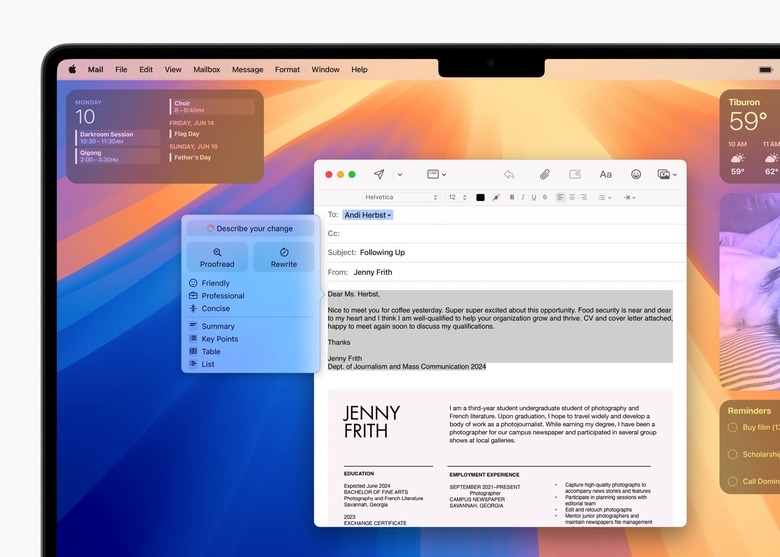No, Apple Isn't Limiting AI Availability To Get You To Buy A New iPhone
When Apple announced Apple Intelligence, the company's new artificial intelligence technology that gives Siri a boost and powers a number of new features across the iPhone, iPad, and Mac, it also revealed that the technology would only be available on certain models. At launch, Apple Intelligence will only be available on the following iPhones, iPads, and Macs running iOS 18, iPadOS 18, and macOS Sequoia:
- iPhone 15 Pro / Pro Max or newer
- iPads running an M1 processor or newer
- Macs running an M1 processor or newer
Of course, a lot of people immediately pointed at this list and said: Apple is just limiting Apple Intelligence to the iPhone 15 Pro to try and get all of us to buy a new iPhone! Why shouldn't I be able to use my iPhone 7 with Apple's artificial intelligence?! And any other opinion that centered around the idea that Apple was just being greedy to push a new upgrade cycle.
This isn't a strategy to sell more iPhones
As expected, Daring Fireball's John Gruber asked Apple executives this exact question in his annual live version of The Talk Show, and they had an answer that, while a lot of people won't be happy with, is perfectly reasonable.
John Giannandrea, Greg Joswiak, and Craig Federighi all came as guests to the show and, when asked if Apple Intelligence was limited to sell us more iPhones, Giannandrea quickly shot that down, saying "The inference of large language models is incredibly computationally expensive. So it's a combination of bandwidth in the device, it's the size of the ANE (Apple Neural Engine), and the oomph in the device to actually do these models fast enough to be useful. You could, in theory, run these models on a very old device. but it would be so slow it would not be useful."
It's not that Apple Intelligence would run fine on older iPhones, and they just don't want you to have it — it's because it would run like garbage because the processor in your phone isn't powerful enough to handle it. It's the same reason that AAA games like Death Stranding will only run on the iPhone 15 Pro. That A17 Pro chip is a beast and the only reason the iPhone can start to get some of these features that would have historically been limited to the Mac and iPad.
Apple's Greg Joswiak really made the point clearer when he said "Otherwise, we would have been smart enough just to do recent iPads and Macs, too." The M1 Macs were released back in 2020 (not 2023 like the iPhone 15 Pro), so Joswiak makes a good point here. If Apple wanted to sell new Macs and iPads, they would have had to come up with a reason to limit Apple Intelligence to the M3 MacBook Air and so on and so forth.
Despite the cynics, this isn't a strategy to sell more iPhones later this year and temporarily boost sales numbers. This is bigger than that. Longer than that. It's about building an experience unique to the iPhone so that it benefits people for not only the next year but the next decade. While some may go without these features at first, they'll get them soon enough when it makes sense for them to upgrade. Apple could also eventually find ways to process more in its Private Cloud Compute and make features available for older phones.
We also have to remember that these features are just getting started. While iPhone 15 Pro owners will get these features first, they're not anything earth-shattering. By the time Apple starts releasing AI features that really knock our socks off, everyone's probably going to have an iPhone capable of using them anyway.
So calm down, everyone. This is a long game, not a short-term money grab.

